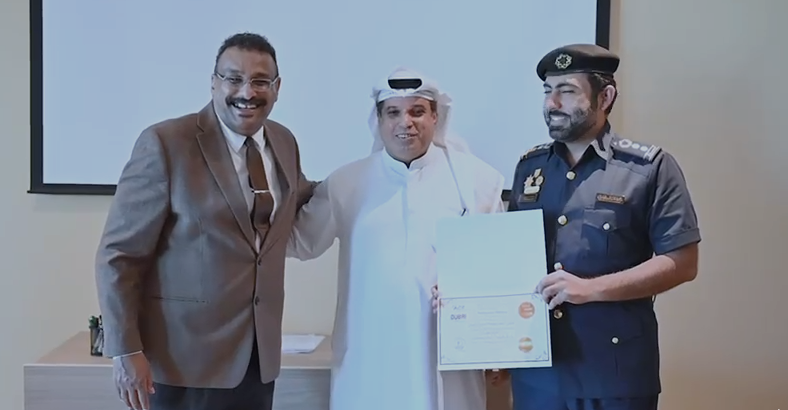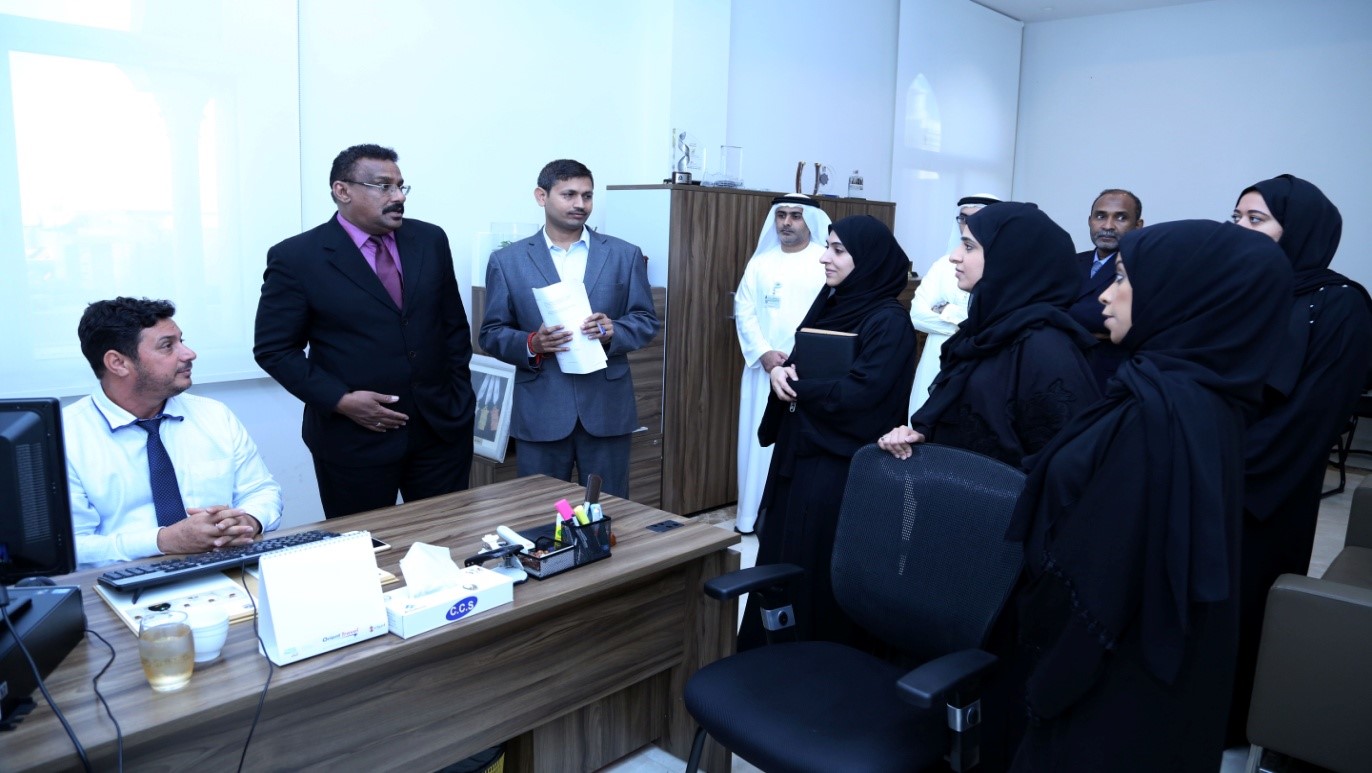Faculty members
Why Faculty Members?
Faculty members are the cornerstone of any successful educational or training institution. They are not merely conveyors of theoretical knowledge but serve as thought leaders, mentors, inspirers, and builders of the future. Their pivotal importance lies in their exceptional ability to enrich the educational process with deep, specialized expertise gained through years of research and practical application. They provide unique and innovative insights grounded in the latest research and ongoing developments in their fields, ensuring that the educational content remains contemporary and aligned with future challenges.
Selecting highly qualified and experienced faculty members is not merely an option but an imperative necessity that guarantees the quality of the training and educational content delivered. This strategic choice also enhances the institution’s credibility and academic reputation at both local and international levels. Distinguished faculty members possess the exceptional ability to transform complex theoretical concepts into practical, immediately applicable knowledge, helping learners bridge the gap between theory and practice. Their role extends beyond this, guiding participants toward independent critical thinking and developing effective, creative problem-solving skills. Moreover, they play a central role in building active and engaged learning communities, fostering constructive dialogue, fruitful interaction, and the exchange of experiences among students and researchers. This creates a stimulating environment for continuous learning, innovation, and personal and professional growth.
In addition to their academic roles, faculty members serve as professional and personal mentors, offering support and guidance to students in their educational and career paths. Their ability to adapt to diverse learning styles and meet the varied needs of learners ensures a comprehensive and fruitful educational experience for all. They are committed to utilizing the latest educational technologies and innovative teaching methods to make the learning process more engaging and effective, enhancing students’ ability to absorb and apply knowledge. Their dedication to ongoing research and knowledge development ensures that the educational institution remains at the forefront of its disciplines and actively contributes to the advancement of science and human knowledge.
In conclusion, the presence of outstanding faculty members is not merely an asset to the institution but a definitive guarantee of delivering a high-quality educational experience. This experience goes beyond rote memorization to encompass holistic development of life and professional skills, the instillation of ethical values, and the inspiration of new generations to realize their full potential and ambitions, effectively contributing to the building of a thriving knowledge-based society.
How to Become a Faculty Member
The pursuit of becoming a faculty member is a rewarding academic and professional journey that requires a deep passion for teaching and research, as well as a desire to shape young minds and contribute to the advancement of knowledge. It is a prestigious career path that culminates in the opportunity to make a lasting, positive impact on students’ lives and the academic community.
This journey typically involves a series of essential steps and academic requirements, along with practical experience. To achieve this goal, you must meet certain criteria that vary depending on the specialization and educational institution. However, they share several key focal points:
- Advanced Academic Qualifications:Most faculty positions require at least a master’s degree, and in many cases, a Ph.D. in the field of specialization. These degrees ensure you possess the in-depth knowledge and research skills necessary for the role.
- Research Experience:A strong research record is crucial, including publishing in peer-reviewed journals, participating in academic conferences, and presenting research papers.
- Teaching Experience:Prior teaching experience is highly preferred, whether as a teaching assistant, lecturer, or in other educational roles. This experience helps develop your ability to convey information and manage classrooms effectively.
- Relevant Professional Experience:In some applied disciplines, practical experience in the field can be highly valuable, enriching theoretical content with real-world insights.
- Continuous Professional Development:Faculty members are expected to stay updated on the latest developments in their fields through ongoing research, workshops, conferences, and specialized training courses.
- Personal and Professional Skills:These include effective communication, critical thinking, problem-solving, adaptability, and a commitment to ethical and academic standards.
These requirements are fundamental for building a strong academic profile that qualifies you to join the ranks of faculty members and actively contribute to the educational and research process.
The Training Board and Accreditation of Professional Certifications
The Training Board plays a pivotal role in the world of professional training, serving as a vital entity in ensuring the quality of certifications and training programs offered. Through its accreditation process, the Board establishes rigorous standards for training content, methodologies, and trainer competencies, guaranteeing that the professional certifications it issues hold real value and are recognized in both local and international job markets. This accreditation is not merely a formality but a comprehensive evaluation process that includes meticulous curriculum reviews, assessments of trainers’ expertise, and verification of the necessary infrastructure for delivering effective and impactful training.
The Value of Board-Accredited Professional Certifications
Board-accredited professional certifications hold immense importance for both individuals and organizations. For trainees, these certifications provide a significant competitive edge in the job market, confirming their possession of specialized skills and knowledge aligned with global professional standards. They enhance opportunities for securing better jobs, advancing in current career paths, and building self-confidence in one’s capabilities.
For organizations, having their training programs and trainers accredited by the Board enhances their reputation and credibility, attracting more trainees seeking high-quality education. Investing in accredited training ensures that companies develop their employees’ competencies in line with the latest industrial and technological advancements, positively impacting overall performance and productivity.
How to Become a Certified Trainer in the Board
To become a certified trainer in the board, you must follow a structured set of steps to acquire the necessary knowledge and skills to deliver high-quality training and gain recognition as an expert in your field. This journey typically begins with obtaining the essential academic and professional qualifications relevant to your chosen training specialization. Often, this requires a university degree in a related discipline, along with extensive practical experience in the field to ensure a deep understanding of both theoretical and applied aspects.
The next step is enrolling in a Train the Trainer (TOT) program accredited by the board. These programs are designed to equip you with essential training and instructional skills, such as curriculum design, effective presentation techniques, classroom management, and performance evaluation. You will learn how to adapt your methods to suit diverse learners’ needs and enhance your ability to inspire and motivate participants. Upon completing the program, you must pass theoretical and practical assessments that evaluate your comprehension and ability to apply the material effectively. These assessments may include live training demonstrations before an evaluation panel, as well as written exams covering training concepts and ethics.
Finally, you must submit a formal accreditation application to the board, including all required documents such as academic certificates, proof of professional experience, TOT program completion certificates, and assessment results. Once your application is reviewed and approved, you will officially become a board-certified trainer, opening doors to numerous professional opportunities, enhancing your credibility in the job market, and granting you the honour of contributing to the development of individuals and organizations.








